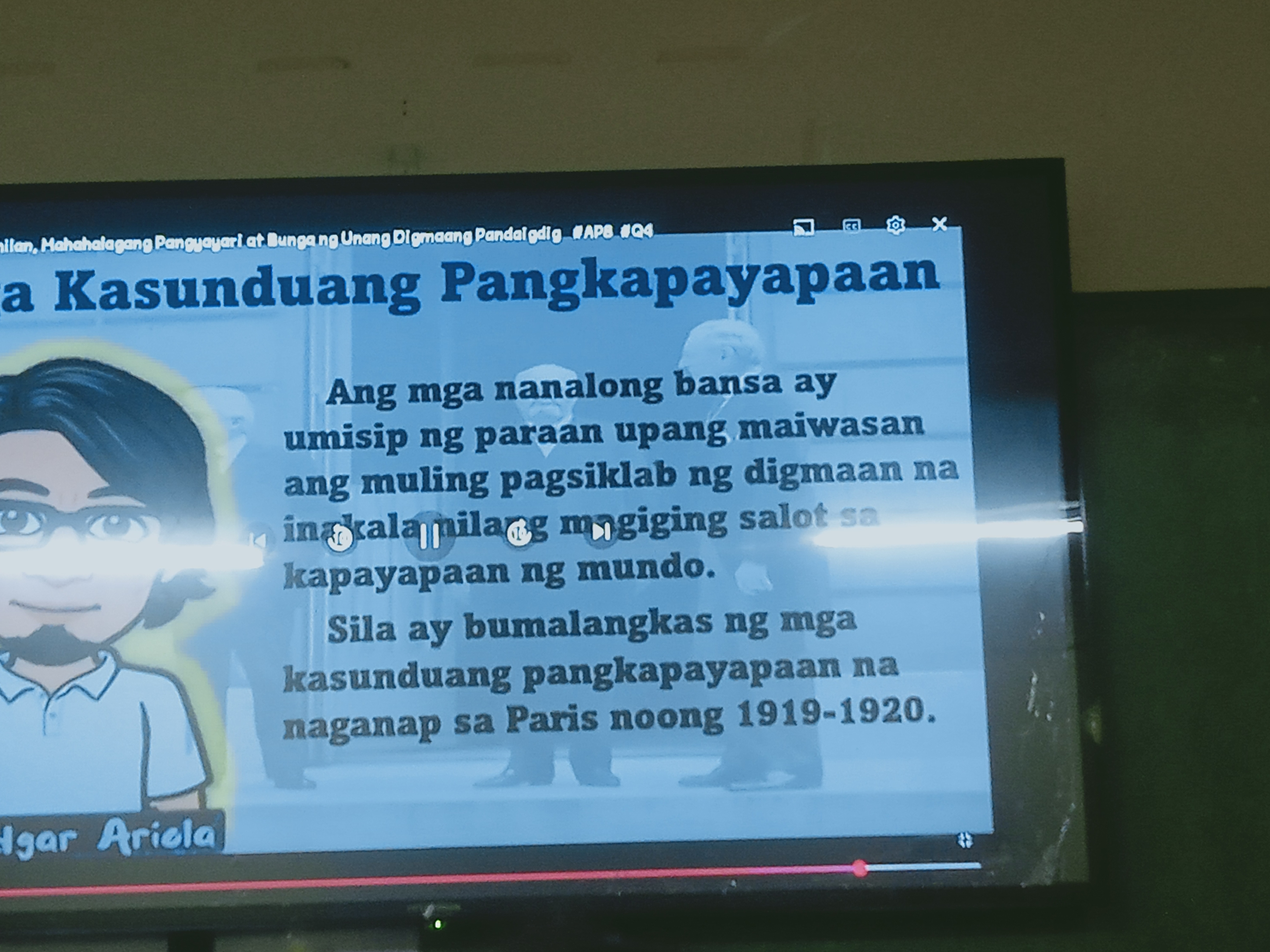Araling panlipunan flashcards
1/14
There's no tags or description
Looks like no tags are added yet.
Name | Mastery | Learn | Test | Matching | Spaced |
|---|
No study sessions yet.
15 Terms

What was World War I?
World War I was a global conflict that lasted from 1914 to 1918, involving many of the world's great powers and resulting in significant loss of life and major political changes.

World War I began in the year _____ and ended in the year _____
World War I began in the year 1914 and ended in the year 1918.
What were the main causes of World War I?
The main causes of World War I included militarism, alliances, imperialism, and nationalism.
What was a significant outcome of World War I?
World War I led to the collapse of empires, significant geopolitical changes, and the establishment of the League of Nations.
The main causes of World War I included __________, alliances, imperialism, and nationalism.
militarism
The leaders of the Big Four at the Paris Peace Conference were Woodrow Wilson, David Lloyd George, Georges Clemenceau, and __________.
Vittorio Orlando.
Militarism is the belief that a country should maintain a strong military and be prepared to use it aggressively to defend or promote national interests. This contributed to the tensions leading up to World War I by creating an arms race among the major powers. It can be summarized as: Militarism was characterized by __________ among nations, leading to an increased focus on military power.
an arms race
What role did nationalism play in World War I?
Nationalism contributed to the outbreak of World War I by fostering a sense of competition and hostility between nations, as countries prioritized their own interests above others and sought to assert their power and influence.
What was the role of alliances in World War I?
Alliances created a system of mutual defense agreements that escalated the conflict, as countries were drawn into the war to support their allies.
What is imperialism?
Imperialism is the policy of extending a country's power and influence through diplomacy or military force, often resulting in the domination of one nation over others.
The German cruiser __________ gained fame during World War I by raiding Allied shipping in the Indian Ocean.
Emden
What was Sydney's role during World War I?
Sydney, as a major Australian city, played a significant role in World War I by supporting the war effort, including the recruitment of soldiers, hosting training camps, and contributing to the supply of war materials.
The Treaty of Paris, which officially ended World War I, was signed in the year __________.